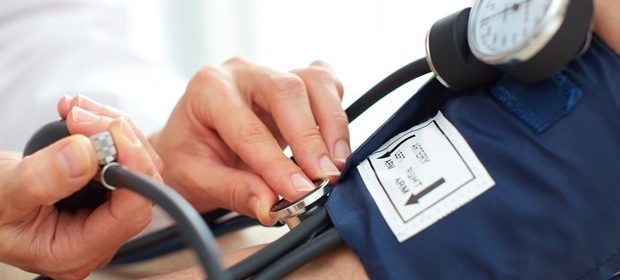online retin

Hyponatremia refers to an abnormally low level of the electrolyte sodium (salt) in the blood. Sodium is an electrolyte that helps regulate the amount of water within and around cells in the body.
Sodium is essential for maintaining blood pressure, as well as for the proper function of nerves, muscles, and other tissues. A healthy blood sodium level is 135 – 145 mEq/L and hyponatremia refers to when the sodium level is lower than this.
Cause
The condition arises when sodium in the body becomes diluted, which may happen for a number of reasons, ranging from an underlying health problem, through to an excess intake of water during endurance sports. Other causes include:
- Diarrhea
- Heart failure
- Kidney disease
- Diuretics
- Liver cirrhosis
- Vomiting
- Sweating
In hyponatremia, the imbalance in sodium arises as a result of one of the following three problems:
- Euvolemic hyponatremia: Here, the total body water is increased, but the sodium content remains the same
- Hypervolemic hyponatremia: This refers to when both water and sodium are increased, but the increase in water is greater
- Hypovolemic hyponatremia: Here, the body loses both sodium and water, but there is a greater loss of sodium
Signs and Symptoms
Sodium is mostly found in the fluids outside of cells and when the level drops to lower than normal, extra water moves into cells, making them swell. Cells in the brain are particularly prone to swelling, which accounts for many of the symptoms and signs seen in hyponatremia.
Some examples of signs and symptoms include the following:
- Loss of energy and fatigue
- Restlessness
- Irritability
- Headache
- Confusion
- Stupor
- Muscle weakness
- Muscle cramps or spasms
- Nausea and vomiting
- Seizures
- Coma
Treatment
The treatment chosen for hyponatremia depends on the underlying cause of the problem. Simply reducing fluid intake may be sufficient if a person is drinking too much, for example, whereas other problems may require the use of intravenous drugs and fluids.
Research
Currently, there are various hyponatremia clinical trials actively recruiting for participants and some of these are described below.
One trial aims to assess the use of a vasopressin receptor 2 antagonist called Tolvaptan to treat children and adolescents hospitalized with euvolemic or hypervolemic hyponatremia. The trial is taking place across six states in the US and in Spain, Germany, and the Czech Republic. Tolvaptan is currently used to treat low blood sodium levels in people with cirrhosis, congestive heart failure, and the syndrome of inappropriate anti-diuretic hormone (SIADH).
The study is a Phase 3b trial, which means the drug is close to approval, but requires further findings for regulatory approval.
The aim is to show that Tolvaptan is a safe and effective drug for increasing and maintaining sodium levels in children and adolescents with these conditions.
Another trial aims to understand how sodium levels are currently managed in patients with acute neurological injury. This multicenter, observational study is taking place across 13 US states and will enrol patients both prospectively and retrospectively.
The aim is to establish the proportion of neurocritical care needed for patients who have a sodium level of 135 mEq/L or less and to describe the treatment strategies currently used. The correlation between clinical factors and serum sodium levels prior to therapy for low sodium will also be assessed, as well as patient outcomes.
A trial in Beijing aims to evaluate the use of Tolvaptan and placebo in individuals with non-hypovolemic, non-acute hyponatremia, that occurs secondary to cirrhosis, SIADH or congestive heart failure, despite standard therapy having been received. The aim is to establish how safe and effective Tolvaptan tablets are for these patients, compared with placebo, when administered over seven days at 15, 30, and 60 mg.
Sources
- www.centerwatch.com/…/hyponatremia
- https://www.kidney.org/atoz/content/hyponatremia
- www.merckmanuals.com/…/hyponatremia
- www.mayoclinic.org/…/con-20031445
Further Reading
- All Hyponatremia Content
- Overhydration / Hyponatremia
- Hyponatremia Symptoms
- Hyponatremia Causes
- Hyponatremia – What is Hyponatremia?
Last Updated: Feb 26, 2019

Written by
Sally Robertson
Sally has a Bachelor's Degree in Biomedical Sciences (B.Sc.). She is a specialist in reviewing and summarising the latest findings across all areas of medicine covered in major, high-impact, world-leading international medical journals, international press conferences and bulletins from governmental agencies and regulatory bodies. At News-Medical, Sally generates daily news features, life science articles and interview coverage.
Source: Read Full Article